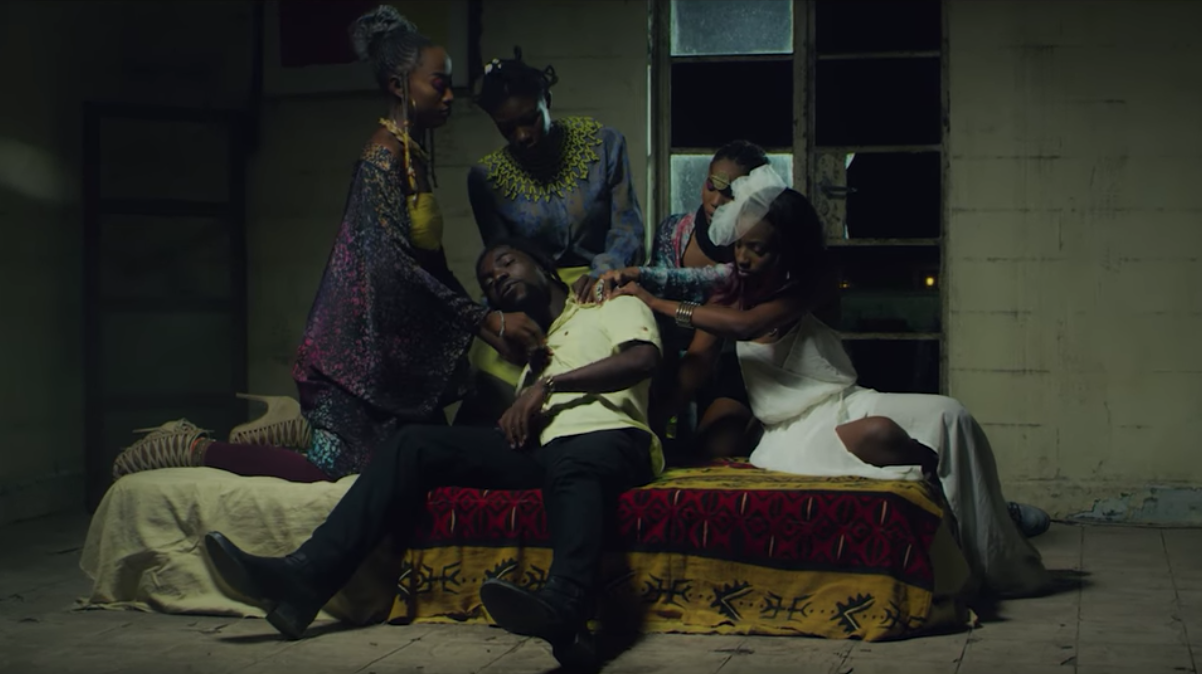Photo credit: Yoway Hairtique
At the extreme right of the stores that hedged the market square of my hometown from the busy Kumasi-Sunyani road was my mother’s salon. Painted dark green with white diagonal stripes, the salon bore a big signage. With a clumsy piece of art of a hairy dark woman, the signage read “Black Beauty Salon”.
I have come to know that the name at the time was to protest a supposed ‘oxymoron’. To some “black” and “beauty” were a mismatch. Perhaps it was my mother’s apologetic response to colleagues who teased her. She was born diminutive, slim and dark. She had been sneered for her dark complexion. Being a troublemaker perhaps stoked the scoffs some more. She would give birth to three of us, with me being the last and the darkest—even darker than her.
Going through elementary school, there were certain nicknames that followed me: “Otuntum” (a street jargon in Asante-Twi for a very dark person), “Gyabedie” (Asante-Twi: Charcoal), Blackie, Black Boy, Coal Tar etc. These aliases were for derogation, mockery and utter derision.
At the Senior High School, it was more pronounced. I would be the easiest butt when the boys gathered to tease. I had gotten used to jokes about my colour and perhaps didn’t even consider the larger implications seriously. It was the usual thing and I was the usual me.
But one time, a joke got to me. A dormitory mate had received food from home and as it was the custom, he had set aside some for colleagues. It wasn’t the kind of invitation one applies etiquettes to. Everyone quickly washed the hand and swooped on the food. A colleague in a fit of a joke called me out. “Masa, go and wash your hands, they are dirty.” I took a quick look at my washed palms and it was the usual plain, dark pad with black patches spread everywhere. We all laughed. But it drew out of me more than laughter.
The supposed joke drew my attention to what our complexion meant to us. In school nobody wanted to be seen as being the blackest. Whoever I was compared with would prove vehemently that he was lighter. Indeed I also wanted to look lighter to be somewhat accepted. It wasn’t the nicest thing to be called ‘blackie’. Being fair was without much trouble. The most handsome and “freshest” was almost always light-skinned.
What my very dark skin has taught me is how we define beauty—or if you like, handsomeness. It tells of how we reckon ourselves, so that in the society of blacks, being black is not desirable. But this traces to the strong and long-standing grips of colonization manifested in an enduring social structure that subtly but sometimes loudly place black beneath white in Black-land ironically.
It reflects on how our society reveres almost everything white and rejects many things black. Thus, we have appropriated white standards of beauty, and defined “beautiful” by them. To keep up with the white standards of beauty, our dark skin must be light, our short and kinky hairs must be long and flowing. We must be slim. For some, even their eyes must be blue. What these mean is that until we are able to make changes to our natural dark selves, we will always feel inferior and less accepted in our skins.
Fortunately, globally many people are gaining some ‘black’ consciousness. The movement against white standards of beauty is gaining wide traction. Many people are embracing their natural hair and being proud of their dark skins. Many people are rising against skin bleaching, toning and lightening. The future black consciousness must lead on from here!
Perhaps my mother wasn’t being apologetic at all. Maybe black beauty was a prophecy—a prophecy that in the future (which is now) people will enter salons to seek black beauty standards.







I was at a point wondering to see the “supposedly” dark person u were, and I found your pic… Lol… U fed my need there though.
I like the piece. If only this black consciousness will rise higher, so that, more products shall be more available and relatively cheaper to purchase. So that, the “normal” saying, “natural is difficult” will be wiped away fast.
Stay Blessed. Keep it up. Good piece😄
An interesting piece by all standards. The paradigm shifts…
“It tells of how we reckon ourselves, so that in the society of blacks, being black is not desirable.” This statement is so poignant and very true.